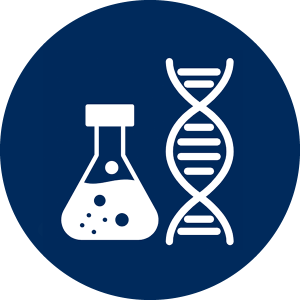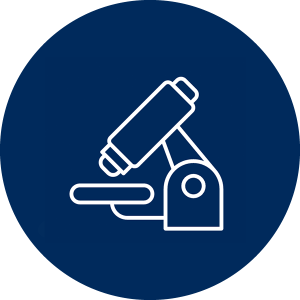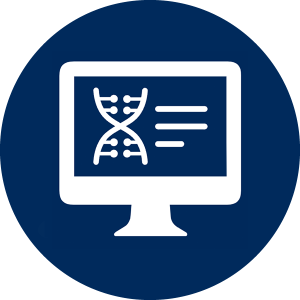Undergraduate Curriculum
Edward Bernard, Ph.D.
Program Coordinator & Senior Lecturer of Microbiology
edward.bernard@maine.edu
207.581.2804

The Department offers separate but related undergraduate programs leading to a Bachelor of Science (B.S.) degree in Biochemistry, or Microbiology or Molecular and Biomedical Science. All three programs are designed to provide the student with a broad background in the biological and physical sciences and an opportunity for in-depth concentration in one or more of the most active disciplines in the biological sciences. For all three majors, the Department has defined a list of Learning Outcomes and coupled these to our courses (Assessment Matrix). Through yearly assessment of our undergraduate programs and students that have completed their degrees, the Department is dedicated to offering the absolute best education to our students.
Career Opportunities
The career opportunities for biochemists, microbiologists, and molecular biologists are numerous and varied. Most of these are at the very forefront of research in the biological and medical sciences. A career in one of these fields offers an opportunity to explore new phenomena, participate at the frontiers of actively expanding areas of science, and to make significant contributions to the human condition and world-wide community. These disciplines are at the core of the rapidly expanding fields of biotechnology, molecular biology and biomedical sciences.
Our graduates have taken up positions in university research laboratories; in a variety of existing as well as emerging genetic engineering and biotechnology industries; in medical, dental, and veterinary research laboratories; in public health laboratories; in pharmaceutical, food and chemical industries; and in environmental research and monitoring laboratories.
Majors in from this department also find that they are highly competitive in getting into graduate programs at colleges and universities around the country, where they successfully further their education leading to a Ph.D or an M.S. degree.
Majoring in biochemistry, microbiology or molecular biology also provides the ideal preparation for further study in medical, dental, veterinary and other health-related professional schools. Students interested in these careers should register in their first year with the Health Professions Committee which provides information and assistance in selecting proper supporting courses and the application process.
Hands-on Experience
An important aspect of all three undergraduate programs is the opportunity to gain hands-on experience in the laboratory. Laboratory courses are offered in fundamental aspects of biochemistry and microbiology as well as specialized topics such as recombinant DNA techniques, virology, cell culture, immunology, pathogenic microbiology and microbial genetics and diversity. Laboratory courses in these topics are not generally available at
smaller institutions without graduate and research programs or at many larger research universities where student numbers are too large to accommodate numerous laboratory courses in such specialized areas.
The University of Maine is large enough to have a faculty with expertise in most sub-disciplines but small enough in terms of student numbers to be able to provide a wide variety of laboratory courses. We also take pride in the fact that all of our laboratory courses above the introductory level are taught by professors, not by graduate students or part-time instructors. We believe strongly that such close interactions between students and faculty in small groups typical of most laboratory courses is very important and mutually beneficial to the student and the faculty.
In their senior year research course all of our undergraduate majors are required to engage in independent study and research with an individual faculty member. This direct link to active national and international-level research activities is an important aspect of our undergraduate programs. Students become part of a research team of faculty, postdoctoral research associates, technicians, graduate and undergraduate students actively engaged in ongoing research projects that are both publicly and privately funded. Courses in cooperative education and field experience provide additional opportunities to earn academic credits while working off-campus in industry, hospitals, and research institutes.




